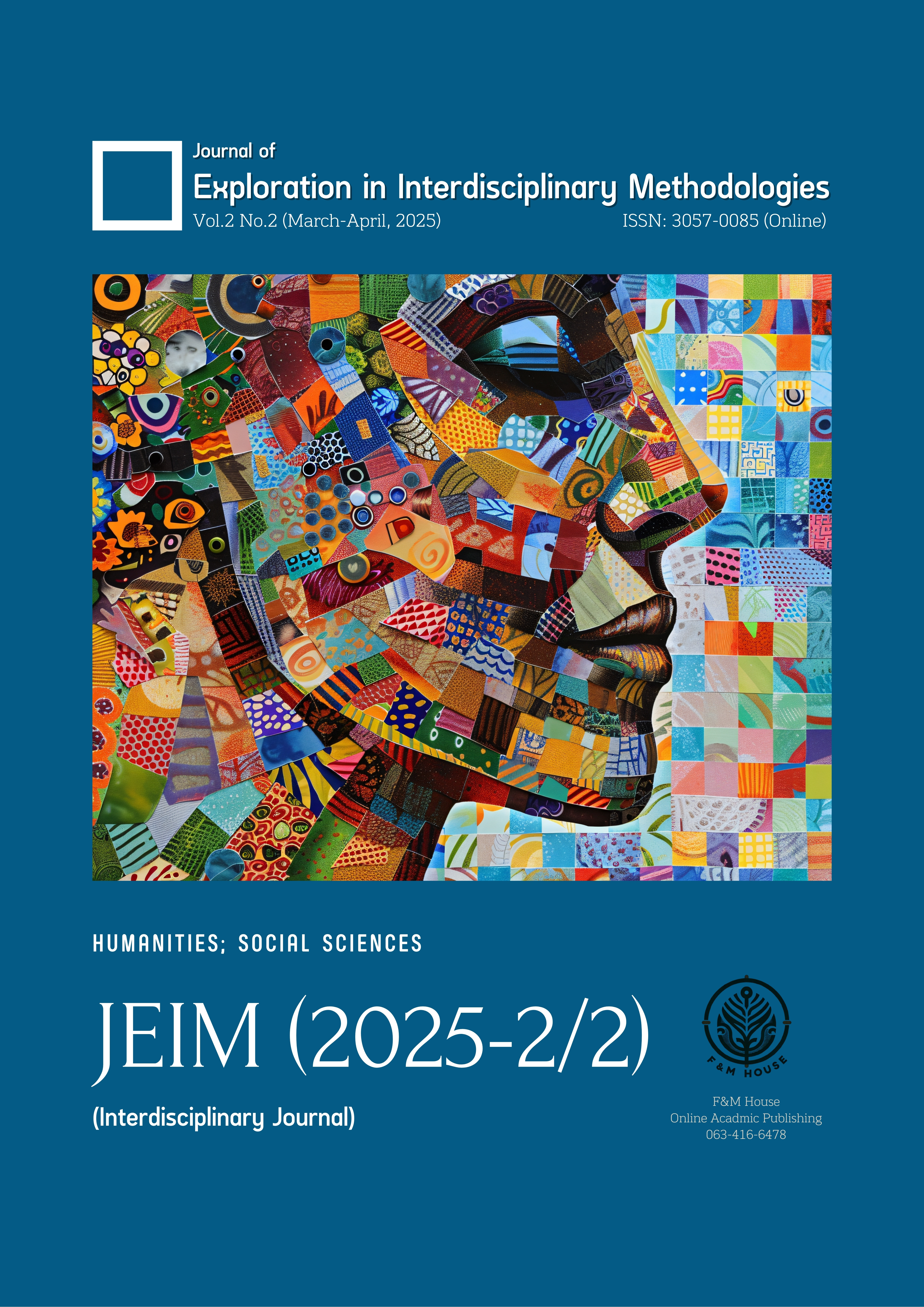The Role of Public Administration in Sustainable Buddhist-Based Community Development: A Thai Perspective
คำสำคัญ:
Public Administration, Buddhist Values, Sustainable Development, Community Engagement, Thailandบทคัดย่อ
This paper explores the role of public administration in promoting sustainable Buddhist-based community development in Thailand, highlighting the integration of Buddhist principles such as compassion, interdependence, and mindfulness into public policies. The research examines how these values can enhance the effectiveness of public administration in addressing critical issues such as social fairness, environmental sustainability, and community engagement. By focusing on collaboration between government, local communities, and Buddhist organizations, the paper outlines strategies for achieving long-term community development that respects cultural traditions while advancing modern sustainability goals. Case studies and examples of successful projects demonstrate how Buddhist teachings can shape public administration practices and contribute to a more inclusive and sustainable society. The study emphasizes the importance of participatory governance, community involvement, and the application of Buddhist ethics in fostering societal resilience and environmental care.
เอกสารอ้างอิง
Abeydeera, S., Tregidga, H., & Kearins, K. (2016). Sustainability reporting – more global than local? Meditari Accountancy Research, 24, 478-504. https://doi.org/10.1108/medar-09-2015-0063
Apinunmahakul, A. (2014). Religious and non-religious giving in Thailand: An economic perspective. Retrieved from https://core.ac.uk/download/234646251.pdf
Arakpothchong, W., Nomnian, A., Sirisunhirun, S., Tongvijit, et al. (2023). The model of good governance application toward human resource management in Buddhist university. Retrieved from https://core.ac.uk/download/568560199.pdf
Belov, V. I. (2024). State management of energy efficiency improvement in agricultural regions of the Russian Federation. Public Administration E-journal (Russia). Retrieved from https://www.semanticscholar.org/paper/94446098adc3a322767af56100d968a4dba20963
Bennett, N., & Dearden, P. (2013). Why local people do not support conservation: Community perceptions of marine protected area livelihood impacts, governance, and management in Thailand. Marine Policy, 44, 107-116. https://doi.org/10.1016/j.marpol.2013.08.017
Dhirawangso, P. W. (2021). Development of the competency of Sangha administrators in Surin Province. Retrieved from https://core.ac.uk/download/621412108.pdf
Ektanitphong, O. (2014). Reclamation and regeneration of the ancient Baray: A proposal for Phimai historical park. Retrieved from https://core.ac.uk/download/84320318.pdf
Jitaksorn, W., Kornmanakit, T., Ninsangkaha, I., Thongsakul, M., Hasup, A., Maswongssa, B., & Anantamongkolkul, C. (2024). Regenerative tourism development: A preliminary study of circumstances in Phuket. International Conference of Business and Social Sciences. Retrieved from https://www.semanticscholar.org/paper/a54b43fec85231162b094e9c5b648685170f4366
Kantabutra, S. (2019). Achieving corporate sustainability: Toward a practical theory. Sustainability, 11, 4155. https://doi.org/10.3390/su11154155
Kulachai, W. (2023). Local government in Thailand: A way forward. Cogent Social Sciences, 9. Retrieved from https://www.semanticscholar.org/paper/87fda73afcd1065fb01cf0885bca45b7c839f3fc
Lee, H. (2021). 동남아시아의 정치 생태학과 새로운 산림 보전 노력. Retrieved from https://core.ac.uk/download/522187006.pdf
Lertsahaphan, U. (2021). Social work of ASEAN women’s association in Kalasin Province to Buddhist integration. Retrieved from https://core.ac.uk/download/621412042.pdf
Maitreephun, W. (2025). Preparing public school leaders for culturally, linguistically, and religiously diverse communities: An exploratory multiple-case study of faculty in Thailand. Retrieved from https://core.ac.uk/download/232016659.pdf
Minh, N., Bensemann, J., & Kelly, S. J. (2018). Corporate social responsibility (CSR) in Vietnam: A conceptual framework. International Journal of Corporate Social Responsibility, 3. https://doi.org/10.1186/s40991-018-0032-5
Miyaguchi, T. (2017). Evaluating mitigation projects through a theory of no change. Retrieved from https://www.semanticscholar.org/paper/9ba3b9015b1d6f0eaca5ce2464c71011fcbc760e
Padhãniko, P. (2021). Development of a model for sustainable environmental administration based on Sappaya Dhamma of primary schools in Thailand. Retrieved from https://core.ac.uk/download/621412027.pdf
Padhãniko, P. (2021). Sufficiency economy philosophy: From the Buddhist notion to survival in COVID-19 pandemic crisis. Retrieved from https://core.ac.uk/download/621412021.pdf
Pookaiyaudom, G. (2012). A comparative analysis of international and domestic tourists' perceptions of community-based tourism: The case of Pai, Thailand. Retrieved from https://www.semanticscholar.org/paper/bec5bb9c1a852b445552637b954a82498fe624d1
Prachumrasee, K., Ronghanam, P., Thonmanee, K., Phonsungnoen, P., Mangma, P., Setthasuravich, P., & Lowatcharin, G. (2024). From traditional to digital: Transforming local administrative organization workflows in Thailand through social listening tools. Social Sciences. Retrieved from https://www.semanticscholar.org/paper/9be5efffde01a2468fb35f93d8bfadcd7ff7bdca
Puntasen, A. (2017). From wealth to well-being and finally Nibbana: A bridge from traditional to Buddhist economics. Retrieved from https://core.ac.uk/download/270165077.pdf
Qian, W., Tilt, C., & Belal, A. R. (2021). Social and environmental accounting in developing countries: Contextual challenges and insights. Accounting Auditing & Accountability Journal, 34, 1021-1050. https://doi.org/10.1108/aaaj-03-2021-5172
Setyo, E. A., Darumurti, A., Hanif, N. A., & Agani, M. W. (2024). Dynamics of urban transport arrangement policies to support the achievement of sustainable transportation. Journal of Contemporary Governance and Public Policy. Retrieved from https://www.semanticscholar.org/paper/fadb11b8ec36c7ca58b28f6d698ed1696f6707a6
Shambaugh, D. (2018). U.S.-China rivalry in Southeast Asia: Power shift or competitive coexistence? International Security, 42, 85-127. https://doi.org/10.1162/isec_a_00314
Sthapitanonda, P., & Watson, T. (2015). ‘Pid Thong Lang Phra’ - The impact of culture upon Thai CSR concepts and practice: A study of relationships between NGOs and corporations. Retrieved from https://core.ac.uk/download/42142891.pdf
Suyendikova, G. K., Barykin, S. E., Sergeev, S. M., Kapustina, I. V., Krupnov, Y. A., & Shchepkina, N. N. (2022). Sustainable development of smart cities and smart territories based on the model of minimizing externalities. F1000Research, 11. Retrieved from https://www.semanticscholar.org/paper/314bd843263e25691c5975feb88ec48833eef490
Thongdejsri, M., & Nitivattananon, V. (2019). Assessing impacts of implementing low-carbon tourism program for sustainable tourism in a world heritage city. Tourism Review, 74, 216-234. https://doi.org/10.1108/tr-04-2017-0082
Thoradeniya, P., Lee, J., Tan, R., & Ferreira, A. (2015). Sustainability reporting and the theory of planned behaviour. Accounting Auditing & Accountability Journal, 28, 1099-1137. https://doi.org/10.1108/aaaj-08-2013-1449
Veng, S. H. (2019). Transnationalism and multi-dimensional flow of remittance in Cambodia. Retrieved from https://www.semanticscholar.org/paper/25d4d49907f1c57f203236d447fcd0c7f9395ced







